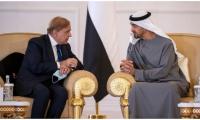Islamabad: The Special Assistant to the Prime Minister for Health Services Dr. Zafar Mirza has termed the approval accorded by the Federal Cabinet on Tuesday to his Ministry’s proposal for levying of health tax on tobacco products and sugary drinks as “unprecedented and historic.” On the contrary, TheNetwork for Consumer Protection believes there is still a slip between the cup and the lip because previously too such moves were shot down in the Parliament.
In a statement issued Thursday, Dr. Zafar has complimented the PM for putting his weight behind the measure despite current economic difficulties. Terming the introduction of health tax as a big win for the people of Pakistan, he said the measure would have far-reaching impact in a country where tobacco kills 160,189 persons every year. Almost 15.6 million adults currently smoke tobacco in the country whereas 1,200 Pakistani children aged between 6-15 years initiate smoking every day. Moreover, the economic cost of smoking amounts to Rs143.208 billion; this includes direct costs related to healthcare expenditures and indirect costs related to lost productivity.
In order to discourage cigarette smoking, increase revenues and reduce tobacco-related healthcare costs, the Ministry of Health has proposed health levy on cigarettes at the rate of Rs. 10 per pack of 20 cigarette sticks along with increase in Federal Excise Duty on cigarettes. The levy of health tax on sugary drinks (at the rate of Rs1 per 250 milliliter) aims to discourage their excessive use to control the burden of Non-Communicable Diseases, specifically diabetes. The revenue collected through levy of health tax shall be earmarked for the federal health budget.
This year’s theme of ‘tobacco and lung health’ reminds the government that it has to fully implement Framework Convention on Tobacco Control (FCTC) and that the health tax is just a step in the right direction. “No other person in Pakistan other than Dr. Zafar Mirza, a WHO man well-groomed in consumer rights, knows that FCTC and the WHO’s MPOWER strategy has to be implemented, not in piecemeal but in toto,” says a statement issued by TheNetwork. The moot point of implementing FCTC is the development of a multi-sectoral tobacco control policy.
“Such a policy will enable the Tobacco Control Cell to go for tobacco control with all ministries backing it and TCC countering tobacco industry influence as well,” said Nadeem Iqbal, CEO of TheNetwork. It will also help dismiss the post-devolution fog about the roles of the federation and provinces in implementing tobacco control laws, he added.
The press release also delineates the roles of various key federal ministries in developing a multi-sectoral tobacco control strategy. These include the Ministry of Commerce (regulation of tobacco from farm to market), the Ministry of Food Security (support for economically viable alternatives for tobacco growers), Ministry of Climate Change (protection of environment and human health), the Ministry of Science and Technology (testing and measurement of emissions of tobacco products), and the Ministry of Finance (introduction of tax measures to reduce demand for tobacco).
President called the Senate meeting under Article 54 of the Constitution
Crowd’s long wait due to persistent rain backed by heavy showers came to an end just for two deliveries with New...
Chief Justice Justice Faez Isa said amendments to the High Court Rules were necessary before appointment of judges
A division bench of the PHC comprising Justice SM Attique Shah and Justice Syed Arshad Ali heard the petition in which...
According to the Senate Secretariat, Gilani emphasized better coordination between the two Houses







